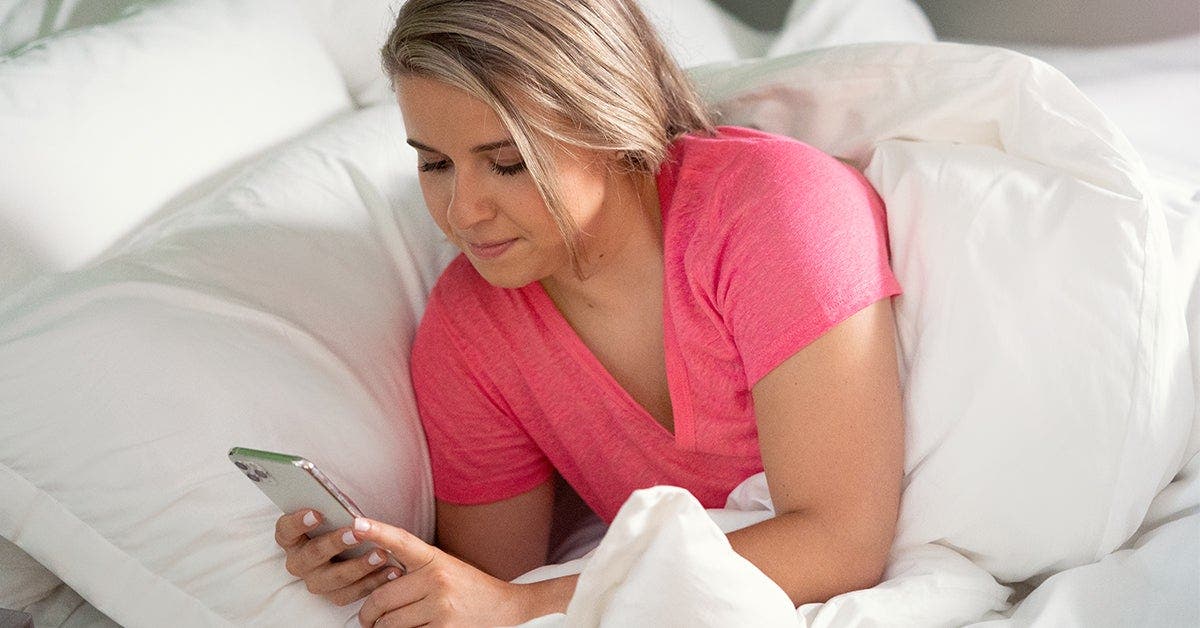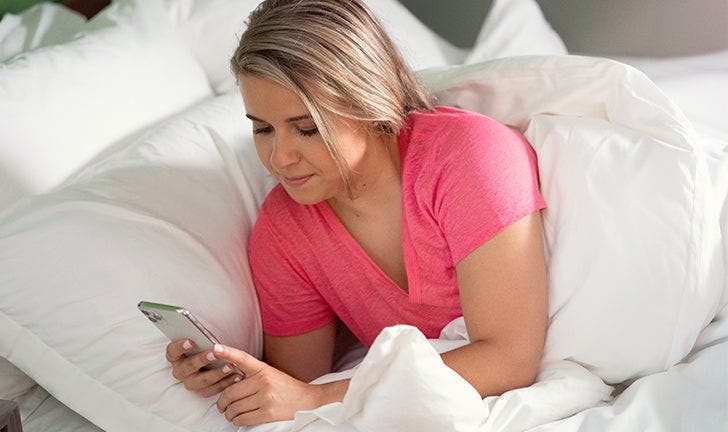Your guide to a digital detox


With many people now working from home and spending more time away from loved ones, there has been a dramatic increase in time spent immersed in the digital world. From working on screens all day to online shopping, and Zoom dinners with family and friends, much of our normal social interactions have shifted online. In fact, global reports showed that in the spring lockdown of 2020, Internet traffic grew 40 to 60 percent with a significant increase attributed to online news sites, video chats, gaming, and home-based work and learn programs.
Digital devices and the impact on your well-being
Being connected to the digital world on a constant basis may seem to be a normal part of our lives these days, but excessive use can impact your overall well-being. This is where a digital detox can be helpful. A digital detox is a period of time when you stop using digital devices as a way to spend more time “living in the moment” and focusing on real-world interactions. This means putting away your phone, tablet, television, laptop or computer, and ceasing all social media activity, even just for a brief period of time.
There is stress that comes from being connected 24/7, especially if you feel the need to constantly check in on emails, texts, and social media apps. Excessive social media use can also impact mental health by causing symptoms of anxiety and depression as a result of constantly comparing yourself to others and FOMO, the fear of missing out on experiences, activities, and connections that others seem to be enjoying online. And while there are benefits to more flexible work-from-home arrangements, work-life balance can be impacted because there is less distinction between when work starts and ends, and the expectation to always be readily available online. Excessive screen time can also affect overall sleep quantity and quality.
How screen time affects sleep
While it’s natural to want to zone out in front of the television or mindlessly scroll through your phone before bedtime, the use of electronic devices with light-emitting screens can wreak havoc on your sleep. Watching the nightly news, an intensely dramatic show or following your social media feeds all stimulate your brain and can cause disruptive thoughts that make it more difficult to drift off to sleep.
From a biological standpoint, screen time at night can directly impact your sleep-wake cycle. This is because electronic devices emit blue light, an artificial colour that mimics daylight. This type of light can make you feel alert during the day, but it affects your sleep cycle by suppressing the release of melatonin at night. Melatonin is a sleep-inducing hormone that your body naturally produces in response to darkness. When its production is interrupted by blue light from electronic devices, research shows it can become more difficult to fall asleep and stay asleep through the night and can reduce your alertness in the morning.
How to identify if you have a screen problem
With screen time comprising such a large part of our lives these days, it can be challenging to determine when the amount of time truly becomes excessive. Here are some ways to identify if your screen use has become problematic:
- Separation anxiety from your phone – you can’t go more than a few minutes without checking it, or you have trouble concentrating on tasks that don’t involve looking at your phone.
- Feelings of stress or anxiety creep in if you don’t have your phone right beside you.
- Scrolling through social media makes you feel angry, depressed, or anxious.
- You notice that you’re constantly thinking about the number of likes, comments, or reshares on your social posts.
- You regularly stay up late to scroll through your phone, or you grab it first thing in the morning to see what you missed during the night.
Steps to reduce device use
If your screen time has become excessive, it’s important to find ways to dial back or consider doing a digital detox to allow yourself a break from being immersed in the digital world. It’s not necessarily about cutting out screens completely, but rather, setting boundaries about how much time they consume in your life. Here are some tips to reduce your use of devices:
Replace video meetings with phone calls. If you’re doing back-to-back video meetings with colleagues at work all day, consider swapping them when appropriate for phone meetings instead. Rather than connecting with family or friends online, suggest going for a walk while you talk on the phone if you can’t be together in person.
Turn off notifications. The constant sounds and blinking of pop-ups notifications from new emails, texts, Slack messages, and various apps can be incredibly distracting and a source of stress for many people. It’s best to remove distractions from digital devices by turning these notifications off, and be more purposeful about when you check in on your various accounts.
Power down. Many phones have the ability to switch to “night mode” in the evening, which reduces the intensity of blue light from the screen that can disrupt your sleep. If you want to curl up with a good book before bed, try reading a paper copy or listening to an audio book rather than using a light-emitting e-reading device.
Ideally you want to turn off all electronic devices at least 30 minutes to one hour before bed, including your television, laptop, tablet, and phone. If you’re likely to continue checking your devices during the night, it may be helpful to leave them in another room or put them on a surface that is not within arm’s reach of your bed.
Designate screen free times. Let yourself disconnect for one day or even just a couple of hours at a time. It can be uncomfortable to do this at first, especially if you’re used to always having your phone right beside you. Start with a simple activity where it’s easier to shift your focus to being present in the moment. For example, turn your phone off or leave it another room during dinner time so you can focus on enjoying the meal and conversation. As you get more comfortable, aim for longer stretches of screen-free time.
